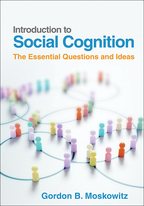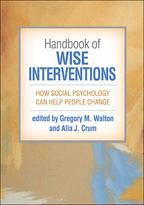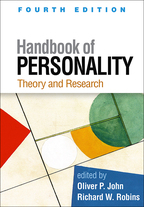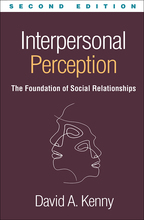The Dependent Personality
Robert F. Bornstein
Hardcover
Hardcover
orderApril 30, 1993
ISBN 9780898629910
Price: $57.00 241 Pages
Size: 6" x 9"
“This book makes a substantial contribution to understanding dependency. The author synthesizes a huge research literature and distills the primary conceptual threads into an integrated theoretical model.”

—Bulletin of the Menninger Clinic
“This book provides an authoritative and comprehensive overview of dependency. It is a well-balanced combination of the theoretical and research findings pertaining to the dependent personality...is a highly recommended as an excellent overview of the vast dependency literature.”

—The Journal of Nervous and Mental Disease
“An admirably comprehensive, probing, and clear review of the research literature on individual differences in dependency. Besides demonstrating that the literature is surprisingly coherent and that it converges on important insights into human social behavior, Bornstein's thoughtful review of more than 700 sources proves that behavioral science research can, in the right hands, be made to yield conclusions of deep and lasting significance. The book will be of great interest and value to personality theorists, researchers, methodologists, and clinicians.”

—Phillip R. Shaver, Ph.D., University of California, Davis
“Wonderfully clear, integrative and critical research review from diverse fields of psychology. Integrates findings with theory. Should be valuable to anyone interested in this important dimension of personality. I gained renewed appreciation of the dependent personality, and I'm sure other researchers and clinicians, as well as their graduate students, will find this book of value.”

—Harold Cook, Ph.D., Teachers College, Columbia University; President of the Psychoanalytic Research Society
“A landmark integration of extensive theoretical, clinical and research literature on the etiology and development, as well as the clinical, social, and interpersonal consequences of dependency. A major contribution demonstrating how the concept of personality or character style offers an integrative theoretical structure for linking normal and pathological psychological development.”

—Sidney J. Blatt, Ph.D., Yale University
—Bulletin of the Menninger Clinic
“This book provides an authoritative and comprehensive overview of dependency. It is a well-balanced combination of the theoretical and research findings pertaining to the dependent personality...is a highly recommended as an excellent overview of the vast dependency literature.”
—The Journal of Nervous and Mental Disease
“An admirably comprehensive, probing, and clear review of the research literature on individual differences in dependency. Besides demonstrating that the literature is surprisingly coherent and that it converges on important insights into human social behavior, Bornstein's thoughtful review of more than 700 sources proves that behavioral science research can, in the right hands, be made to yield conclusions of deep and lasting significance. The book will be of great interest and value to personality theorists, researchers, methodologists, and clinicians.”
—Phillip R. Shaver, Ph.D., University of California, Davis
“Wonderfully clear, integrative and critical research review from diverse fields of psychology. Integrates findings with theory. Should be valuable to anyone interested in this important dimension of personality. I gained renewed appreciation of the dependent personality, and I'm sure other researchers and clinicians, as well as their graduate students, will find this book of value.”
—Harold Cook, Ph.D., Teachers College, Columbia University; President of the Psychoanalytic Research Society
“A landmark integration of extensive theoretical, clinical and research literature on the etiology and development, as well as the clinical, social, and interpersonal consequences of dependency. A major contribution demonstrating how the concept of personality or character style offers an integrative theoretical structure for linking normal and pathological psychological development.”
—Sidney J. Blatt, Ph.D., Yale University











